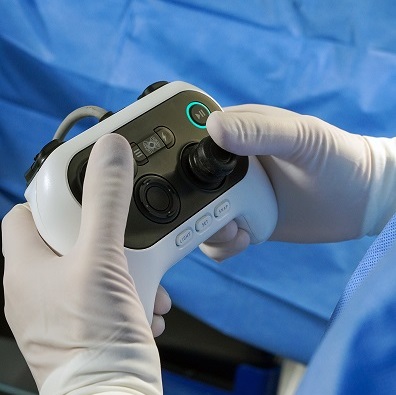When you choose Inspira for lung cancer care, our multidisciplinary team will be by your side through all your treatments, tests and procedures. The team includes medical, surgical and radiation oncology physicians experienced in lung cancer as well as pulmonologists and rehabilitation specialists.
Our Approach to Lung Cancer
Lung cancer survival rates are improving, especially when cancer is caught at an early stage. Screening for small masses of abnormal tissue in the lungs, known as lung nodules, can help detect cancer cells before they spread. Our Lung Cancer Screening program follows criteria established by the National Lung Cancer Screening Trial, which found that screening for lung cancer using low-dose CT scans can lower mortality rates by 20 percent.
Inspira’s commitment to improving patient outcomes includes a Lung Cancer Screening Center of Excellence and advanced, image-guided diagnostic procedures.
Symptoms of Lung Cancer
In its early stages, lung cancer usually doesn’t usually present noticeable symptoms. That’s why it’s crucial to get screened if you are at high risk.
When signs of the disease start to emerge, they may include:
- Persistent or worsening cough, sometimes producing bloody mucus
- Recurring respiratory infections, such as bronchitis or pneumonia
- Painful breathing
- Shortness of breath
- Wheezing
- Hoarseness
- Trouble swallowing
- Unexplained weight loss and/or loss of appetite
Our Diagnostic Approach

Inspira offers endobronchial ultrasound (EBUS) and navigational bronchoscopy, which are minimally invasive, highly effective technologies to diagnose lung cancer. Navigational bronchoscopy creates three-dimensional images of the lungs. Doctors can use these images to see difficult-to-access areas when taking a lung biopsy. Additionally, Inspira is among the first in the U.S. to utilize Auris Health’s Monarch™ Platform, a revolutionary robotic innovation designed to enable earlier detection of lung cancer. Using a familiar controller-like interface, Monarch allows your physician to navigate the endoscope and view the inside of the lungs to obtain a tissue sample for biopsy. This technology provides your physician with improved reach, vision, and control for earlier and more-accurate diagnosis of small hard-to-reach lung nodules. By catching lung cancer earlier while it is still treatable, you have the best chance for successful treatment.
The Impact of Smoking and other Risk Factors
Smoking is the biggest risk factor for lung cancer and can negatively impact outcomes for those who have already been diagnosed. At Inspira, we offer smoking cessation services at our Quit Center. Other risk factors for lung cancer include exposure to smoke or other cancer-causing agents as well as a family history of lung cancer.
Our Approach to Lung Cancer Treatment
Depending on its type and stage, lung cancer may be treated with surgery, chemotherapy or other medications, radiation therapy, local treatments such as laser therapy, or a combination of treatment methods, including targeted therapy and/or immunotherapy.
Treatment for lung cancer at Inspira Health includes one or more of the following:
- Surgery: Surgery is part of the treatment for early stage lung cancers. The type of surgery depends on the size and location of the tumor in the lung, the extent of the cancer, the general health of the patient and other factors. We offer experience in minimally-invasive procedures to reduce discomfort and recovery time whenever possible.
- Radiation therapy: Radiation is the use of high-energy radiation to kill cancer cells and shrink tumors. Radiation may be used as a standalone treatment or with other treatments. Inspira’s capabilities include stereotactic body radiation therapy (SBRT), a radiation technology that has been highly successful in treating small lung lesions even when patients are not candidates for surgery.
- Chemotherapy: Chemotherapy is a form of medical oncology, which is the use of anticancer drugs to treat cancerous cells. In most cases, chemotherapy works by interfering with the cancer cell's ability to grow or reproduce.
- Targeted therapy: Targeted therapy is the use of drugs that target specific parts of cancer cells or nearby cells that help them grow. So far in the treatment of lung cancer, these drugs have only been found to be useful for some non-small cell lung cancers.
- Immunotherapy: Immunotherapy, often called biological therapy, uses your body’s immune system to fight lung cancer.
If you’d like more information about your or a loved one’s cancer care, or to receive a second opinion about a diagnosis, our team is here to help.
Lung Cancer Services at Inspira
- A program to monitor lung nodules over time and treat them when necessary
- Support services for all cancer patients

